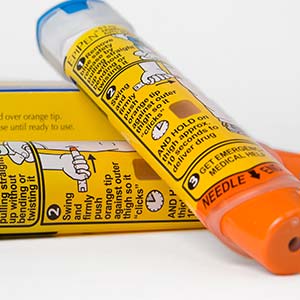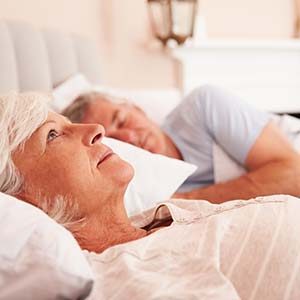Anxiety can be defined simply as “the body’s reaction to stressful, dangerous, or unfamiliar situations.” In fact, it is normal to experience anxiety before a big event or during a frightening encounter. But how to relieve anxiety when the body reacts in a way that’s “often irrational, overwhelming, and disproportionate to the situation?”
If you experience the following symptoms for prolonged periods of time, you could have heightened anxiety:
- Sensations of panic and uneasiness for no apparent reason
- Obsessive thoughts or ritualistic behavior
- Trouble sleeping
- Heart palpitations
- Muscle tension
- Shaking, trembling, or an inability to remain calm
- Trouble concentrating
- Rapid breathing, or hyperventilation
- Dry mouth, sweating, dizziness
- Cold or sweaty hands and feet
- Fatigue, headaches, and/or stomachaches
Now, let’s talk about how to relieve anxiety so you can start feeling better. If some of these symptoms describe you, don’t worry, you’re not alone! Anxiety is the most common behavioral health challenge in the United States.
Ruling out underlying conditions
If you’re worried you may have a physical problem, consider seeing your primary care doctor to rule out any underlying conditions. Many find this a helpful way to ease stress since they can be confident in their diagnosis of anxiety.
How to relieve anxiety throughout the day
- Exercise more. Even ten minutes of brisk walking five days a week can be enough to relieve symptoms of anxiety.
- Mind your breathing. Panic and anxiety attacks are often caused by rapid, shallow breathing. Make sure to breathe deeply by expanding your diaphragm and getting air into your tummy instead of your chest. Check out these breathing exercises from Stress.org.
- Eat healthily. Make sure to eat three meals a day, concentrating on healthy foods like lean meats, fruits and vegetables, and whole grains. Limit the sugar in your diet, as it may be a risk factor for depression.
- Reduce your caffeine intake. It’s easy to drink too much coffee in the mornings and make yourself jittery. Try to limit it to one cup per day, or stop altogether, and see if it helps your anxiety. Not only will this help you sleep, it will prevent you from becoming dehydrated and feeling lightheaded or woozy, which can contribute to your anxiety.
- Socialize. Studies have shown that interacting with other people is one of the best antidotes for depression. We tend to isolate when we are in pain or feeling bad. But resist that impulse. Instead, participate in fun activities with friends and family. Or take up a sport or athletic pursuit with others, like bicycling or hiking.
- Avoid alcohol and drugs. These do not reduce stress or symptoms of depression; in fact, they can worsen them.
- Talk. Don’t hold your feelings inside. Instead, talk to family or friends you trust about what is going on in your life. You should also consider seeing a psychotherapist or joining a support group. Your doctor can discuss your options with you and make recommendations.
Seek the guidance of a professional
After ruling out underlying conditions and starting to practice everyday ways to relieve anxiety, consider seeing a professional. Someone accredited in an established form of psychology can show you how to relieve anxiety and find ways to work through the emotions.
You may also want to consider Cognitive Behavioral Therapy (CBT), which is a “short-term, goal-oriented psychotherapy treatment that takes a hands-on, practical approach to problem-solving.”
An experienced therapist might help you identify consistently negative thought patterns that contribute to anxiety, then work with you on techniques for recognizing them when they first appear. This way you can allow the thoughts to pass and avoid escalations in anxiety.
Considering medications
Prescription medications, when prescribed and monitored by a trained doctor, can relieve the symptoms of anxiety disorders — although they do not cure the disorder itself.
The most commonly prescribed medications are specific anti-anxiety medications and certain antidepressants. Medications are often used in combination with psychotherapy.
Always remember, medication is a personal decision. You should talk to your doctor and others who have tried it, to see if it’s right for you. Do not feel pressure or guilt if you choose to take, or not take, medication for anxiety.
Use your Employee Assistance Program (EAP)
One of the best parts about being on an employer-provided health plan is your access to your Employee Assistance Program (EAP). Your EAP is a series of free or low-cost programs that helps you navigate everyday issues.
Consequently, your EAP may be able to help you with stress, anxiety, or depression. These additional benefits are entirely confidential. Depending on your plan, your EAP may offer counseling sessions or even classes on how to relieve anxiety, in addition to other resources.
This is the end of our Spring series about Stress and Anxiety. Missed the other parts? Click below.




